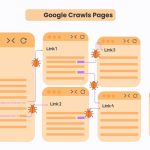Indexing is the process by which Google discovers and adds web pages to its search results. In order to improve your website’s indexing, it is important to optimize several factors.
Start by creating a clear site hierarchy and optimizing internal links. Then, focus on optimizing your page’s loading speed. Finally, minimize duplicate content using canonical tags and redirects.
1. Create a Sitemap
A Sitemap is an essential component of any website, enabling search engines to discover and index pages faster. It also provides valuable information about a website’s structure and organization.
A good Sitemap should be clearly organized, ensuring that all URLs are accessible to users. It should also prioritize URLs based on their importance and include last modification dates. Moreover, it should not contain duplicates. Additionally, it should be updated regularly to reflect new pages and content, accelerating page indexing.
XML format sitemaps are specifically designed for search engines and provide vital information about the web page. There are many online tools and plugins that can generate a sitemap for your website. In addition, you can submit your XML sitemap through Google Search Console and other webmaster tools. However, you must ensure that your sitemap is error-free and follows XML sitemap protocol. Furthermore, you should avoid common mistakes such as including non-indexable pages and not prioritizing important pages.
2. Optimize Your Site’s Loading Speed
Website speed is one of the biggest factors in search engine optimization, and slow loading pages can be a major turn off for visitors. It is recommended that you minimize image sizes, use minimal plugins (especially those that are not necessary for your site’s functionality), and utilize a page speed testing tool to see how your pages perform.
Regularly posting content on social media is a great way to alert crawlers when new pages are available and help speed up the indexing process. However, if you have thousands of old and outdated pages indexed, they could be hurting your relevancy scores. These unneeded URLs are often referred to as “index bloat.” Identifying them can be difficult, but there are tools available that can help you spot these errors. Often, these errors can be corrected by fixing tags or removing duplicates. However, sometimes, the best option is to simply delete these pages from your index. This can be accomplished using a sitemap deletion tool, or by adding a meta name=”robots” content=”noindex” /> to the pages you want to exclude from the index.
3. Submit Your Site to the Major Search Engines
Back in the day, it was common to submit websites manually to the major search engines. Even today, submitting your site through platforms like Google Search Console and Bing Webmaster Tools can still have benefits.
By submitting your site to these tools, you can take a proactive approach to ensuring that search engines like Google get the latest versions of your website. This can help you avoid indexing issues like rogue canonical tags that point to old versions of pages, preventing those pages from ranking.
It’s also important to regularly check the status of your site’s submission through these tools. This can be done by checking your coverage within each tool, and also by examining the index status of specific pages. For example, you might want to monitor your thank you pages – these are typically the pages that people land on after filling out forms like mailing lists or ebook downloads. This can help you ensure that the correct pages are indexed and are getting organic traffic.
4. Optimize Your Content
A website’s content is the foundation of its SEO, so it should be optimized to rank well in search engine results. This includes writing keyword-rich meta tags and titles, and using appropriate keywords throughout the site. Optimizing content also includes creating content that aligns with search queries and provides value to users.
It’s important to update your content regularly and to remove outdated information from older posts. This will help Google index your pages more quickly. It’s also helpful to share your new content on social media to notify crawlers of fresh, relevant content.
Another tip for improving indexation is to use a main> element to demarcate the page’s primary content from other sections of the website. Using this tag will prevent unnecessary pages from being indexed and will make it easier to remove duplicate content.






